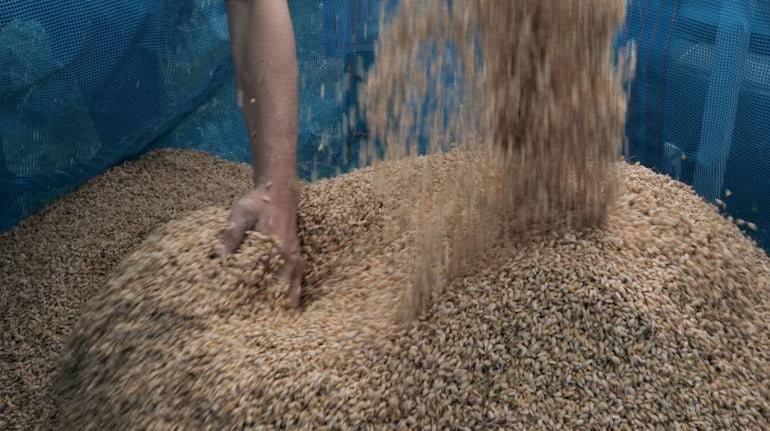
November marked the 15th month of India’s high cereal inflation at 10.27 percent, which has remained in double digits since September 2022.
At the onset of COVID-19 on March 30, 2020, the government announced a subsidised grain scheme under the Pradhan Mantri Garib Kalyan Anna Yojana (PMGKAY). According to the scheme, 813.5 million Indian ration card holders could purchase 10 kg of wheat and rice at subsidised rates of Rs 3 and Rs 2, respectively. The scheme was then revised to provide for 5 kg of rice and wheat at the same prices from January 2023 onwards.
As inflation rose, the government has taken a slew of steps to curb the worrying trend of rising food prices, including the rollout of its own price-controlled ‘Bharat’ brand of cereals.
The launch of Bharat cereal brand
Bharat Dal: On July 18, 2023, Union Food Minister Piyush Goyal launched the sale of 'subsidised' chana dal under the brand name ‘Bharat Dal'. This was the first of the Bharat brands to be brought to the market. It was priced at Rs 60 per kg, 18 percent lower than the market price of the lentil at Rs 74.5 per kg. Chana dal prices have risen 14.5 percent in the past year, as per data provided by the department of consumer affairs.
The Centre’s move to launch chana dal at ‘subsidised’ rates came at a time when retail prices of tur (arhar) had risen sharply, with the all-India daily average retail price of tur being recorded at Rs 134.48 per kg on July 18, almost 33 percent higher than a year ago. The retail prices of urad and moong were also 10-11 percent higher compared to their levels a year before.
Bharat Atta: Fortified wheat flour, made with a blend of rice, wheat, and pulses, was launched on November 6, 2023, for sale across the country before the beginning of the festival season. This was aimed at controlling the prices of wheat flour, which have been on the rise. Bharat Atta, priced at Rs 27.5 per kg, is being made available across the country at price-sensitive points via 700 mobile vans and 2,000 government-operated outlets.
The retail price of wheat flour at the launch of Bharat Atta had stood at Rs 36 per kg in the country, up 5.6 percent on-year, according to data collected by the Department of Consumer Affairs.
A total of 2.5 lakh metric tonnes of wheat had been allocated to central government agencies, including NCCF (National Cooperative Consumers' Federation of India Limited) and the National Agricultural Cooperative Marketing Federation of India Ltd (Nafed) at Rs 21.5 per kg, that are turning this into atta and selling it at Rs 27.5 per kg. The quantity of wheat allocated under the scheme has been enhanced further to four lakh metric tonnes, in December.
Also Read: Govt to offload 7 lakh tonne onions by late February to bring down prices to Rs 35 a kilo
Have the measures helped?
Despite the launch of subsidised cereals, prices of both pulses and wheat flour have not come down significantly.
As of December 27, prices of tur stood at Rs 153.02 per kg, up from Rs 134.5 per kg during the launch of Bharat Dal. However, they were down 3 percent month-on-month from Rs 157.78 as of November 27.
“On pulses and wheat, we have arrested the trend of increase, which is significant as prices have started plateauing. Green shoots are visible in tur where prices have started coming down. We aim to bring down tur prices to under Rs 130 per kg by February 2024,” Consumer Affairs Secretary Rohit Singh had told Moneycontrol in a recent interaction.
Prices of wheat flour have remained stable, ruling at Rs 36 per kg as of December 27, with no change since the launch of Bharat Atta.
“The sale price of Bharat Atta and Dal being below the MRP is expected to attract significant consumer interest and is playing a role in keeping inflation stable, if not reducing it. But the true effectiveness of Bharat Rice/Dal/Atta in controlling inflation will depend on its widespread availability, posing a substantial logistical challenge that the government must address,” Anand Chandra, co-founder at agri start-up Arya.ag, which operates more than 3,000 storage warehouses for rice and wheat across the country, said.
However, as per a senior government official, it is the trend of rising prices of food items that the ministry has been able to arrest at the right time, making the intervention fruitful. “Prices of chana dal have come down from Rs 83.35 per kg last month to Rs 79.85 per kg this month. Similarly, for wheat flour, prices have remained stable, which would have risen very high had we not intervened,” the official explained.
Also read: Government hopes to reduce tur prices to Rs 130/kg by February
Launch of Bharat Rice on cards?
After Bharat Atta and Bharat Dal, the Centre, as per government sources, is now planning to sell Bharat Rice at discounted rates to contain the rising prices of the cereal that have refused to come down.
The decision comes amidst a significant surge in the all-India average retail price of rice, reaching Rs 43.3 per kg, reflecting a 14.1 percent increase from the previous year.
Also Read: Food On Fire| How has the government tackled the inflation inferno
Check Free Credit Score on Moneycontrol: Easily track your loans, get insights, and enjoy a ₹100 cashback on your first check!